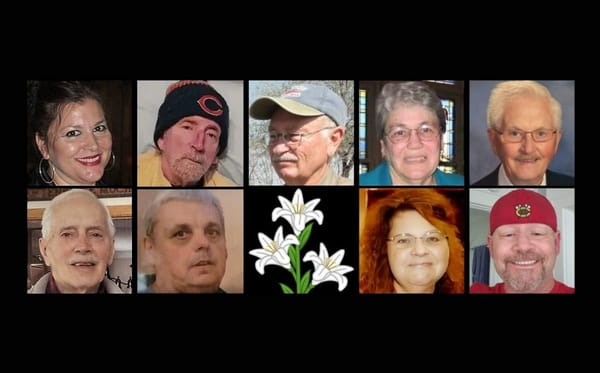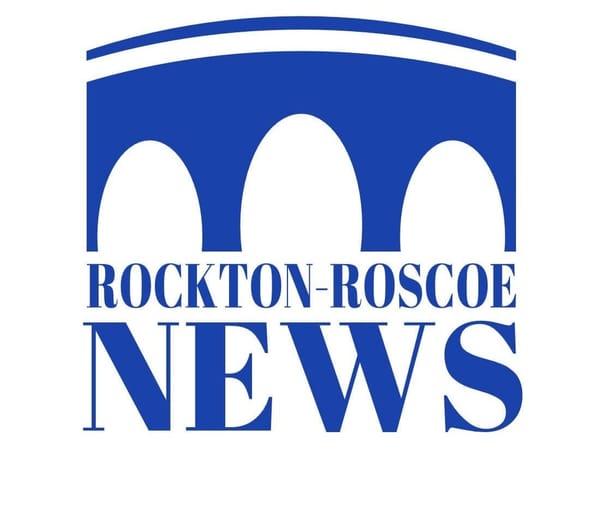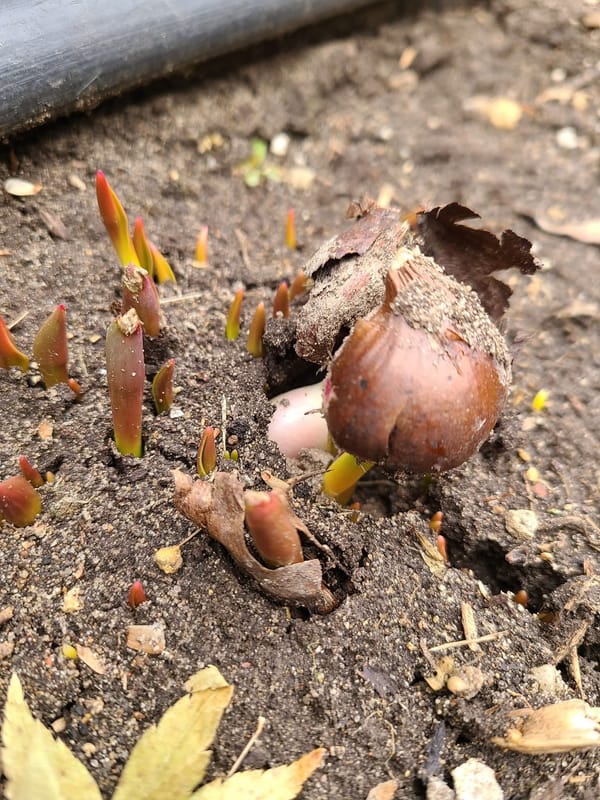Rockton resident marks World Bee Day
World Bee Day marks Anton Jansa's birthday, May 20, 1734, who pioneered modern beekeeping techniques.

In the home of Rockton resident Karen Phelps, the life of bees and their great importance is on display in several rooms.
Ornaments hanging on a fully decorated tree were custom created by Molly Phelps Butz.
In another room, books about bees sit on separate shelves.
Extra shelves are neatly filled with honey, mugs with bee artwork on them, and bee related memorabilia, and a “Save Our Bees” tote bag is hung on the front door.
Carefully placed pieces of artwork are found on different walls, one with a photo of Napoleon Bonaparte with honey bees all over his royal robe.
One of the book in the library states that most bees and wasps are closely related. The key difference is that bees eat pollen and wasps are meat-eaters. Adult wasps hunt other insects to feed their protein-hungry larvae, an important part of the food web.
“Years ago I read that a bumble bee shouldn't be able to fly, according to the rules of aerodynamics. That has since been disproved, but it piqued my curiosity” Phelps said.
“The more I learned, the more interested I became. Most hives are amazing little worlds. I have such respect and gratitude for their important contributions to ours.”
"World Bee Day" is dedicated to beekeeper and apiarist Anton Jansa. An apiarist is a beekeeper who enjoys working with the honeybee.
This day falls on Jansa's birthday, May 20, 1734. Janssa pioneered modern beekeeping techniques in the 18th century, and also made his mark as a painter.
United Nations members approved a proposal in 2017 to set this date, with the first
World Bee Day officially started in 2018. "It is about time; however, I wasn't aware of this until this year," Phelps said.
Reasons for the original proposal are to raise awareness of the importance of pollinators, threats they face and their contribution to sustainable development. The purpose of acknowledging the role of bees and what they do to benefit the ecosystem is an integral part of actions supported by this unique day.
The 2024 World Bee Day focused on the theme “Bee engaged with Youth.”
This highlighted the importance of involving young people in beekeeping and pollinator conservation efforts, recognizing them as stewards of the environment.
"There are several beekeepers in the Rockton-Roscoe area. I cannot wait to visit one or more of them," Phelps said.
Pollination is a fundamental process for the survival of our ecosystems. Statistics show that 90% of the world's wild flowering plant species depend entirely, or at least in part, on animal pollination, along with more than 75% of the world's food crops and 35% of agricultural land.
Pollinators contribute directly to food security and are also the key to conserving biodiversity.
Behind the goal of protecting bees and other pollinators is to strengthen the measures behind these actions. This would significantly contribute to solving problems related to the global food supply and to eliminate hunger in developing countries.
Humans all depend on pollinators and it is crucial to monitor their decline and to halt the loss of biodiversity.
Bees and other pollinators such as butterflies, bats and hummingbirds are increasingly under threat from human activities.
There are 20,000 known species of bees.
Bees are under threat, with present species extinction rates sitting at 100 to 1,000 times higher than normal due to human impacts, Close to 35% of invertebrate pollinators, particularly bees and butterflies. About 17% of vertebrate pollinators such as bats face extinction globally.
If this trend continues, nutritious crops such as fruits, nuts and many vegetable crops will be substituted increasingly by staple crops like rice, corn and potatoes. If this happens can result in an unbalanced diet.
Intensive farming practices, land use change, mono-cropping, pesticides and higher temperatures associated with climate change all pose problems for the populations, and by extension affect the quality of food that is grown.
What role can people play in preservation and expansion of resources?
We can make a difference by planting a diverse set of native plants, which flower at different times of the year, buy honey from a local farmer, buy products from sustainable agricultural practices, avoid pesticides, fungicides, or herbicides in gardens, protect wild bee colonies whenever possible, make a bee water foundation by leaving a water bowl outside, help to sustain forest ecosystems, and raise awareness by sharing information within communities and networks.
As beekeepers or farmers, reducing or changing the use of pesticides is one effective tool to use. Diversifying crops as much as possible or planting attractive crops around the field, and creating hedgerows can help on these lines.
Governments and decision makers can strengthen the participation of local communities in decision making, in particular that of indigenous people who know and respect ecosystems and biodiversity. Enforcing strategic measures including monetary incentives, and increasing collaboration between national and international organizations, and by using research networks to monitor and to evaluate pollination services.
The Food and Agricultural Organization (FAO) of the United Nations is a specialized agency that leads international efforts to defeat hunger and to improve nutrition and food security. They help governments and agencies to develop agriculture, forestry, fisheries and land and water resources.
Honey is a valuable food source that often has multipurpose. One of the highest quality honey sources is Yemeni, which has a history that goes back into antiquity, tracing its origins to the tenth century BCE. Unfortunately the production of Yemeni honey faces daunting challenges.
In addition to the damage done by the country's long-running conflict, honey producers also have to grapple with an unpredictable climate. An initiative from FAO and World Bank has helped beekeepers across the country to increase their productivity and nutrition through better beekeeping practices which includes a more efficient handling of the bees and techniques for extracting honey.





